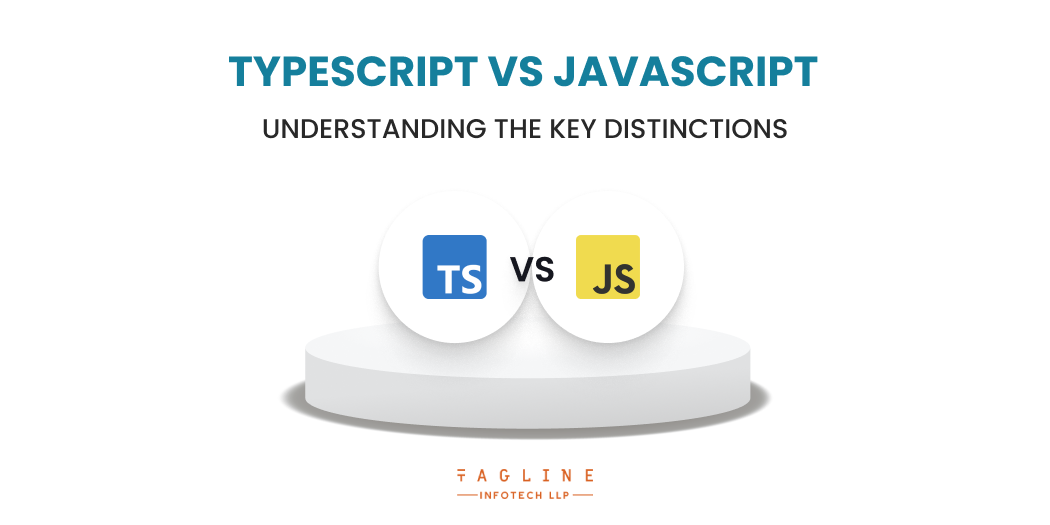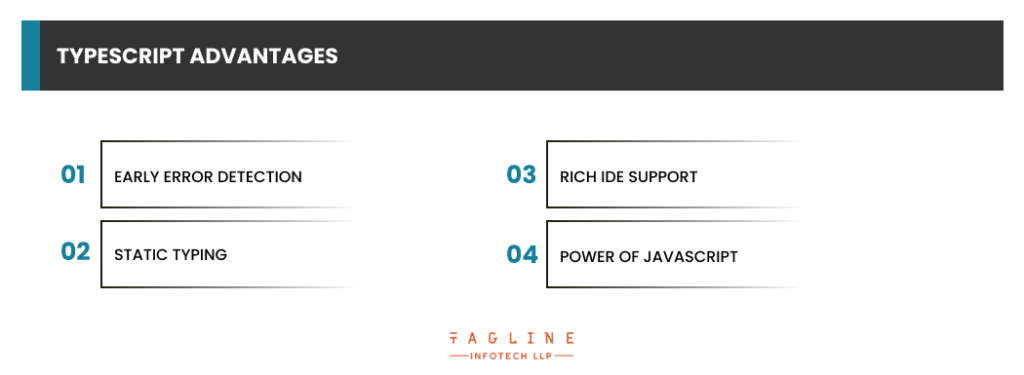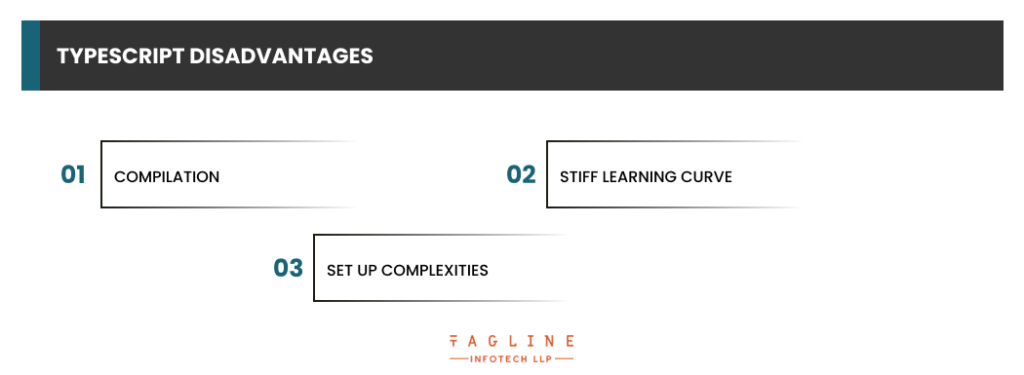How ChatGPT and RPA are Transforming Automation’s Future
May 17, 2024
Home >> JavaScript >> TypeScript vs JavaScript: Understanding the Key Distinctions

JavaScript and TypeScript are prominent programming languages known for their feature-rich capabilities. JavaScript was initially launched as a client-side programming language for developers. Here you can learn about TypeScript vs JavaScript differences and determine which one is best for you. Later, it was discovered that JavaScript could also be used for server-side programming. JavaScript code grew heavy and complicated over time, failing to serve the aim of universal object-oriented programming languages. There were several limitations in adopting JavaScript as a server-side technology for enterprise level programming. Following that, TypeScript was created to assist developers in filling these gaps.
JavaScript, sometimes known as JS, is a programming language used to update and modify HTML and CSS codes. This popular dynamic programming language is mostly used for web development and HTML page enhancement. Using JavaScript, data may be calculated, assessed, manipulated, validated, and tested. JavaScript is commonly used as a scripting and coding language on the client side. When someone requests an HTML page containing JavaScript code, the script is sent to the browser, which is responsible for performing the necessary steps. Brendan Eich is the creator of JS. It originally appeared in 1995, when it was utilised by Netscape Navigator, a browser developed by Netscape.

JavaScript checks user input for mistakes. This implies that JavaScript considers user mistakes while transferring data to the server, such as leaving a blank space or entering wrong information. It saves a significant amount of time while running the code.
Platform independence is critical because JavaScript is a front-end language that runs on browsers. This feature allows JavaScript code to execute on several platforms such as Netscape, Windows, and Macintosh.
JavaScript has the capability of detecting the browsers and operating systems of users. In some circumstances, separate outputs for various browsers are required.
JavaScript is a front-end language that can conduct basic, simple front-end computations without requiring a server call each time. It saves time and assures efficiency.
JavaScript’s complete UI will assist you in creating great functional features for a static web page. It promotes learning, enjoyable elements, and engagement for the coder and the user.

The core language is JavaScript, which is far older than TypeScript. As a result, it has an advantage over TypeScript because many frameworks do not support TS. The current JavaScript libraries and frameworks can help the developer speed up and streamline the process.
Regardless of TypeScript’s functionalities and capabilities, developers prefer JavaScript. As a result, there is a sizable development community that supports JavaScript. A community can help newcomers or beginners locate like-minded, experienced people to guide, challenge, and assist them.
JavaScript was created originally for front-end development. However, with the release of the newest versions, it also enables back-end development. It expands JavaScript’s consumer base.
Do you want to improve your web development skills?
Contact us today to learn from industry professionals and obtain the skills necessary to flourish in web development.

JavaScript code may execute in a variety of browsers. However, it frequently produces different results for various browsers. It raises the likelihood that many functionalities will be incompatible with various browsers.
JavaScript’s fault detection and debugging capabilities are less efficient than those of other programming languages. It slows down the process for developers and does not provide early detection in times of emergency.
Any unauthorised users or external parties can see the JavaScript code. This simple access to the source code may jeopardise the data and web page’s security, perhaps leading to cyberattacks.
A little, or simply a single, mistake might halt the execution of JavaScript code. Furthermore, mistake detection in JS is delayed.
Typescript is a well-known open-source programming language. It is considered the next level of JavaScript for application-scale development. This programming language is object-oriented, tightly typed, and compiled. TypeScript is both a set of tools and a programming language. TypeScript was created by Anders Hejlsberg and is licenced under the Apache 2 licence. TypeScript, sometimes known as a superset of JavaScript, is created and built to handle complex applications. It has more loaded features in addition to those found in Javascript. For execution, all TypeScript programmes are converted into JavaScript counterparts.

Static Typing refers to the programmer’s requirement to define the variable type. The Static Typing feature of TypeScript brings several benefits to the language, such as early mistake detection, quicker code completion, and so on.
TypeScript is the ideal blend of old and new features. It is entirely compatible with JavaScript versions ranging from earlier to newer, such as ES7 and ES12. It can compile completed ES7 code back to ES5 and vice versa.
This provides a smooth transition and language portability.
TypeScript is a Javascript superset. It adds extra JavaScript capabilities as part of its advanced features. These characteristics include object-oriented programming techniques, JavaScript library support, platform independence, etc.

Typescript offers stronger features for detecting issues early on. It assures that developers save a significant amount of time while also improving code quality.
Declaring a variable with a type guarantees that the code is well-structured. It also aids in the early detection of errors, enhances productivity, and speeds up the debugging and troubleshooting process.
One reason that TypeScript Development outperforms JavaScript Development is stronger IDE support. Many Integrated Development Environments (IDEs) such as Visual Studio, WebStorm, Eclipse, and others support TypeScript, allowing developers to utilise a single user interface for many functionality.
TypeScript is introduced to cover the shortcomings of JavaScript. As a result, TypeScript, with its features, has all of the advantages of JavaScript.
Also Read : JavaScript vs Ruby On Rails: What to look for in 2023?

TypeScript requires.ts files to be compiled before they can be used in a Node.js application. It adds another step for the developer and creates more work. Many developers aim to avoid TS for this reason.
TypeScript, unlike JS, is not a simple language to learn. It necessitates scripting expertise. Furthermore, many developers think that mastering JavaScript is necessary before attempting TypeScript. It influences developers’ decision to use solely JavaScript.
TypeScript may be challenging for programmers due to the complexity in building up processes. One significant disadvantage is that everything must be written by hand, and unlike JavaScript, which has less code and greater freedom, Typescript feels difficult and restrictive.
TypeScript is appropriate for frontend and backend development. Because TypeScript is compiled to JavaScript, it may be used in any environment that supports JavaScript.
TypeScript is a superset of JavaScript, which means that it includes all of the features of JavaScript and adds additional features on top of it. Some of the key differences between TypeScript and JavaScript include:
TypeScript provides several benefits over JavaScript, including:
TypeScript is not intended to replace JavaScript, but rather to complement it. Explore this blog to learn about Typescript vs JavaScript pros and cons. TypeScript is a superset of JavaScript, which means that it includes all of the features of JavaScript and adds additional features on top of it. JavaScript will continue to be used for many purposes, but TypeScript is becoming increasingly popular for large-scale web applications.
TypeScript provides several benefits over JavaScript, including type safety, code organization, IDE support, and code maintainability. TypeScript is particularly useful for large-scale web applications, where the benefits of type checking and code organization can help improve code quality and maintainability.
The difference between typescript and javascript is that JavaScript is a good choice for smaller applications, while TypeScript is better suited for larger, more complex applications. If you are working on a project that requires a lot of code organization, type safety, and maintainability, TypeScript may be a better choice. Explore the advantage of TypeScript vs JavaScript to determine which platform you should choose for development. However, if you are working on a smaller project or a project that requires a lot of flexibility, JavaScript may be a better choice.
JavaScript and TypeScript are both excellent web development programming languages, each with its own set of capabilities and advantages. JavaScript is a powerful programming language commonly used for front-end and back-end development. It is noted for its interactive nature and significant community support. TypeScript, being a superset of JavaScript, on the other hand, has additional benefits like as static typing, early error detection, and enhanced code organisation, making it a favoured choice for large-scale applications and projects that demand high maintainability and code quality.
Consider your project’s unique needs and the amount of code complexity you anticipate when deciding between JavaScript and TypeScript. JavaScript may be better for smaller apps and projects prioritizing flexibility. However, TypeScript may be better for larger, more complicated applications requiring maintainability and type safety.
TypeScript provides several advantages over JavaScript. Its static typing catches errors during development, improves code readability, and enables better code maintenance as projects grow.
TypeScript adds a layer of type checking during development, which can help catch errors early and improve code quality. However, once TypeScript is compiled to JavaScript, the performance difference between the two is negligible.

Digital Valley, 423, Apple Square, beside Lajamni Chowk, Mota Varachha, Surat, Gujarat 394101
+91 9913 808 2851133 Sampley Ln Leander, Texas, 78641
52 Godalming Avenue, wallington, London - SM6 8NW